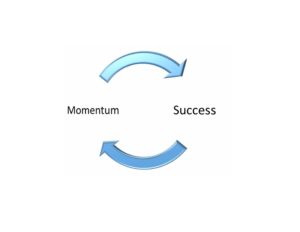Ironically, following a piece of “good advice” left me unable to write for months.
That good advice was Write Every Day.
So I did. I set what I thought was a reasonable goal: 2,000 words. On a good day, I can write twice that. Even on an average day, 3,000 isn’t that hard. I decided that every day, no matter what, I’d write 2K words.
So I wrote, even if I was tired. I wrote, even if I was a little sick. I wrote, even if I had to break prior plans because I hadn’t gotten my day’s writing done before it was time to go. I wrote, even if I was writing incoherent garbage I’d delete the next day.
Then life began to trip me up.
We’d planned a trip for the weekend. That’s 2K for Friday, 2K for Saturday and 2K for Sunday that has to be done before we leave on Friday. I managed it, but when I got home, my “a little sick” became “a lot sick” and I spent the day unable to sit up and write. That meant the next day I was under the gun to write 4K words to make up for what I’d missed. I started staying up later and later, saying no to more and more activities, skipping more and more meals, trying to catch up for words I’d missed, or get enough done in advance to do activities planned weeks in advance. I gave up more and more interests to save time for writing, until writing was the only thing I did.
Soon the schedule I’d made in the hopes of keeping momentum ended up getting away from me, mowing me over, and hammering me into the ground.
By the time I gave it up, I was sick long-term, and when I recovered, I had to focus on making up the time lost from my day jobs. In the end, I think I lost about three months of writing time because I’d tried to keep momentum.
The moral of the story was for me to build in time off. If I’m treating writing as a full-time job, I work five days a week–not seven. That way I don’t have to do extra work in advance to go on a weekend outing, and if I’m sick one day, I don’t have to worry about making it up so long as I make that day one of my two “days off.” I don’t sacrifice cooking and eating time for writing: no more convenience junk food or skipped meals. I also don’t sacrifice sleep.
Ironically, I’ve found myself gettting more work done by taking two days per week off. 10K words a week is still a novel’s worth every three months. I’m in better health, in better mood, and producing better quality work–no more sitting at the typewriter hammering out garbage just to get the 2K done so I can sleep at last. I’ve found a goal that’s achievable, repeatable, and long-term sustainable.
So to me, momentum doesn’t mean writing every day. It means finding your rhythm that you can sustain long-term, without sacrificing your physical health, your mental well-being, your connection with friends and family, and the other interests that enrich your life.






